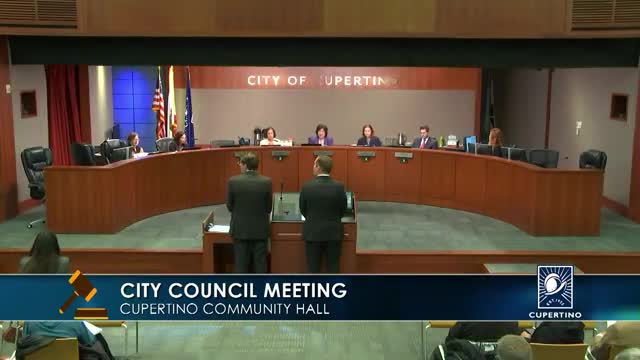Cupertino council votes 3‑2 to oppose Santa Clara County Measure A sales tax
Get AI-powered insights, summaries, and transcripts
Subscribe
Summary
After public comment from health‑care workers and residents, the Cupertino City Council voted 3‑2 to oppose Measure A, a proposed 0.625% countywide sales tax to bolster the Santa Clara Valley Health and Hospital System; the council authorized the mayor to send an amended opposition letter citing equity and local fiscal impacts.
The Cupertino City Council voted 3‑2 on Oct. 13 to oppose Santa Clara County’s Measure A, a proposed 0.625% countywide sales tax on the November ballot intended to shore up funding for the county hospital system. The council also authorized the mayor to send an amended opposition letter raising concerns about the tax’s regressivity, accountability, special‑election timing and impacts on cities’ ability to pursue local revenue measures.
The vote followed more than an hour of public comment. Health‑care workers and nonprofits urged the council not to oppose the measure. Michael Elliott, executive director of Valley Health Foundation, told the council: “This is a crisis that is caused entirely by unprecedented and historic cuts to federal health care programs,” and called Measure A a “temporary solution to prevent hospital closure in Santa Clara County.” Registered nurses and physicians from county hospitals testified that emergency‑department and trauma capacity would be threatened without additional revenues.
Several local residents and advocates urged a different course. Public commenters including Sam Rao urged the council to prioritize strictly local matters and, separately, to lobby the state to allow Cupertino to join a separate pilot for speed cameras (AB 645). Other speakers argued the county’s budget priorities have shifted and that the county’s purchase of bankrupt hospitals and growth in hospital spending merit a pause and more scrutiny before asking voters for new revenue.
Council discussion focused on whether the city council should take a formal position at all. The Legislative Review Committee recommended opposing Measure A and submitting a letter stating the city’s concerns. Vice Mayor Matt Moore moved to accept the committee recommendation and authorize the mayor to send the letter; the motion was seconded. Councilmember Rod Fruin moved a substitute motion to take no position; that substitute failed 2‑3 (Fruin and Mohan voting yes; Wong, Moore and Mayor Eva Chow voting no). The original motion to oppose Measure A, as amended to add language about the measure’s potential to impede cities from enacting their own local revenue measures and noting the county’s opt‑in to a 0.5% VTA transit measure for 2026, then passed 3‑2 (Wong, Moore and Mayor Chow voting yes; Fruin and Mohan voting no).
The draft letter the council considered recommended opposing the county tax on the grounds that sales taxes are regressive, that Measure A is a general sales tax (not a dedicated or special fund in the city’s view), that a special‑election timing limits public attention and turnout, and that the projected revenues would not fully resolve the county’s long‑term hospital funding shortfall. The council added language citing potential effects on cities that may be planning their own sales measures and referenced the county’s opt‑in to a separate transit sales tax measure.
Clarifying details raised during the meeting included the percentage figure in the draft (described as 0.625% countywide), and a public speaker’s statement that the measure could generate roughly $330 million a year (the number was cited by a commenter, not adopted by the council as an independent finding). City Attorney advice cited a government code provision (identified in the meeting as “government code, 8,314”) limiting city officials’ use of public resources for campaigning and prompted the council to avoid a staff‑led study session framed as persuasive advocacy for or against the measure.
Public commenters representing hospitals, nurses and social‑service agencies emphasized local health‑care access and warned of longer emergency waits and service cutbacks without new revenue; speakers supporting a cautious approach urged more fiscal scrutiny and alternatives that would not rely on a regressive county sales tax. Several speakers said the county board of supervisors had unanimously placed the measure on the ballot and that nonprofit and health‑care providers had endorsed the measure; others said cities face their own looming budget gaps.
Decision and next steps: The council’s approved action authorizes Mayor Eva Chow to send a revised letter to county officials stating Cupertino’s opposition and asking for more equitable, transparent and sustainable alternatives. Council members said the mayor may finalize language to reflect the agreed amendments and to note potential local fiscal impacts. The motion record shows the council’s opposition will be publicly communicated; the city’s individual council members retain the right to state their personal positions when voting in their capacity as private citizens.
Ending: The council adjourned after the vote and instructed the mayor’s office to transmit the opposition letter as authorized.
